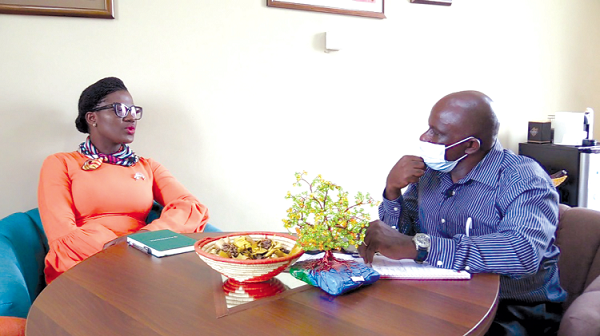The National Schools Inspectorate Authority (NaSIA) will eliminate all schools under trees and substandard educational institutions, the Director-General of the authority, Dr Haggar Hilda Ampadu, has announced.
She explained that with the coming into force of the new Education Regulatory Body Act 2020 (Act 1023), “such schools do not have a place because as the law stipulates, before you start operating a school, you must secure a licence.”
“But before we can issue you with a licence to operate, we have to come and inspect your site and surely, if it is not fit for purpose, we will not issue you with a licence.”
“So, as we are functioning now, we hope to eliminate schools under trees and the various ‘mushroom schools’ as we have now,” Dr Ampadu told the Daily Graphic in an exclusive interview in Accra.
Identity
She said NaSIA had already embarked on a nationwide sensitisation tour to introduce itself to its stakeholders and also explain its mandate to them.
Dr Ampadu was happy that the name of the institution, which used to be the National Inspectorate Board (NIB), was now NaSIA, “because we used to have identity crises. People used to confuse us with the NIB Bank and to compound issues, the Bureau of National Investigation (BNI) is now National Investigation Bureau (NIB).”
She said now with the new name, it was set to play its rightful role as the inspector-general.
Dr Ampadu explained that as part of the sensitisation, the board of NaSIA directed that all institutions whose line of work would be affected by the new law should be written to.
Letters to stakeholders
“So we wrote to all manner of organisations including the banks, telling them that you need a certificate from us and registration certificate if you are to establish a school,” she further explained.
Some private schools in March this year had their bank accounts frozen by the banks because they were operating schools without licences.
But the Director-General explained that the letter was to tell the banks to demand a certificate from the authority from any pre-tertiary school wanting to do business with it.
She said when the banks froze the accounts of the schools, most of them contacted the authority, “and what we did to rectify that was that if you call us and you genuinely have an account with a bank, we give you an introductory letter.”
Dr Ampadu said the introductory letter basically informed the banks that the bearer was operating a school recognised in the system and they were in the process of getting their registration done.
Impact of COVID-19
On the deadline for such schools to fully complete the registration process, she explained that because of COVID-19, most private schools were badly hit and so, “we are going slowly with them. We have relaxed with the enforcement.
“So, we are giving them up to the end of the year to register and do the right thing and be aware of the law, hoping that by the end of the year, COVID-19 would have subsided and their businesses would have picked up,” Dr Ampadu explained.
She said what the authority realised was that some of those schools did not even have the licence from the Registrar-General’s Department.

